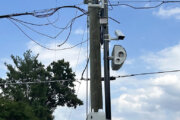Dietitians have long debated the benefits of diets for sustainable weight loss. Fads come and go, and many don’t live up to their promises. But what happens when we shift our viewpoint on dieting — seeking not to shed pounds but to increase longevity?
That’s what researcher Dr. Valter Longo, the director of the Longevity Institute at the University of Southern California, set out to do when he created the Prolon diet.
What Is the Prolon Diet?
The Prolon diet is a commercially available fasting-mimicking diet intended to boost cellular rejuvenation and slow down aging.
Longo has been studying the impact of calorie restriction and fasting on longevity since the 1990s. He marketed the Prolon diet, which stands for Pro-Longevity, in 2016 as a way for people to benefit from fasting without the extreme caloric deprivation of other fad diets. For example, in a water fast, you eliminate all calories for one to three days, forcing the body to burn fat and protein for energy instead of its preferred fuel, carbohydrates. A fasting-mimicking diet, on the other hand, “tricks” your body into thinking it’s fasting, but it still provides some calories and essential nutrients.
The Prolon program is based on 25 years of research and 32 clinical trials with 18 universities around the world, says Melanie G. Murphy Richter, a registered dietitian nutritionist and director of communications for L-Nutra, the company that owns Prolon. The diet has also received more than 130 patents.
[READ: The 5:2 Diet: Is It Good for Weight Loss?]
How Does the Prolon Diet Work?
The Prolon diet lasts for five days and is intended to be repeated once per month for one to six consecutive months depending on your health status and goals. After this initial period, the company recommends following the plan three times a year for maintenance.
Prolon has two phases with different caloric and nutrient intakes:
| Day | Total Daily Calories | Macronutrient Breakdown |
| Day 1 | 1,100 calories | 11% from plant-based protein 46% from unsaturated fats 43% from fiber-rich carbs |
| Day 2-5 | 725 calories | 9% from protein 44% from unsaturated fat 47% from fiber-rich carbs |
During each of the five days, you should consume a minimum of 70 ounces of water.
At the end of the fasting period, dieters are instructed to ease into a more typical eating pattern by first transitioning to liquid foods, such as soups and juices. In time, light meals that include rice, meat, fish or legumes can be added. This tiered return to solid foods can help your body gradually readjust to eating and reduce the risk of binge eating.
[READ: Intermittent Fasting With Diabetes: Is It Safe?]
What Do You Eat on the Prolon Diet?
The Prolon prepackaged meal kit contains plant-based whole foods in specifically formulated quantities and ratios and excludes all meat, dairy, gluten, GMOs and processed foods.
Typical food items in a Prolon meal kit include:
— Olives
— Kale chips
— Dehydrated soup powders (to mix with hot water)
— Herbal teas
— Nut bars
— Vitamin and mineral supplements, including an omega-3 supplement
— A proprietary glycerol mix (to mix with water), which the company says fuels and protects muscles
The meal kit may appear comical to some — including Jordan Hill, a Denver-based registered dietitian nutritionist and certified specialist in sports dietetics with Top Nutrition Coaching. Hill says reading the ingredient list made her chuckle.
“Those are absolutely things that folks can get from the grocery store and probably spend far less than what they would be spending on these boxes,” Hill says. “But the convenience of something like this is that people don’t have to think about it. They don’t have to grocery shop; they have a very structured plan for five days.”
It can also be difficult to achieve the correct ratio of nutrients when attempting to recreate the Prolon plan at home, Richter adds.
[Read: Intermittent Fasting: Foods to Eat and Avoid.]
How Much Does the Prolon Diet Cost?
Prolon currently offers several product subscriptions. The two main options are:
— A basic five-day program, which currently costs $175 when set up as a quarterly subscription or $195 when ordered just once
— An expanded variety plan, which costs $185 with a subscription or $205 as a one-time order
The company also offers a range of themed bundles, including:
— Performance bundle: $235.19
— Longevity bundle: $249
— Intermittent fasting bundle: $282
— Beginner bundle: $238.55
— 3x reset bundle: $99
Benefits of Fasting With Prolon
The Prolon Diet is derived from the idea that there are benefits to fasting — once in a while — as this process can clean out toxins and allow for cellular rejuvenation, or autophagy, the process by which the body recycles old cells and generates new ones.
Fasting has also been associated with a variety of other health benefits, including:
— Weight loss and loss of belly fat
— Improved cholesterol and blood sugar levels
— Decreased inflammation throughout the body
— Slowed aging and increased longevity
— Improved immune system function
— Improved relationship with food, eating patterns and mindful eating
Some research, including a 2020 study in Nature Communications and 2023 study co-authored by Longo, have suggested that fasting may also benefit cancer patients undergoing chemotherapy. In the 2023 study, for instance, researchers noted that fasting forced the body into a protective state, which helped it guard healthy cells from the chemo, better streamlining the treatment to target cancer cells.
Richter notes that the L-Nutra Health company has extensive disease-specific data to back up its claims about the benefits of the Prolon program. She points to “an entire medical arm (of the company) that is tackling the actual remission and regression of certain diseases like type 2 diabetes, for example.”
Risks of Fasting with Prolon
Fasting doesn’t come without some potential health risks. While short-term fasting can have benefits for the cells, fasting isn’t healthy for everyone and isn’t sustainable long term.
Potential problems can include:
— Dehydration and nutrient deficiencies
— Dizziness or fainting
— Hunger
— Reduced cognitive function
— Mood changes or irritability
— Loss of menstruation
— Rebound binge eating or development of disordered eating habits
In addition, when you deprive your body of food, it may turn to other sources of energy, breaking down fat stores and muscle to fuel activity.
“If we’re in this calorie deficit for an extended period of time, we’re losing muscle, which is where our strength is,” Hill says.
When the body senses it’s not being fed, it also shuts down certain cellular functions to prioritize essential life functions. The Prolon plan avoids this common pitfall of other low-calorie diet and fasting plans by not triggering nutrient-sensing pathways. NSPs are the body’s method of tracking food intake and slowing down metabolism if calorie and nutrient intake is too low.
Who Should Not Try the Prolon Diet
Richter says that several groups of people should not undergo this diet due to its risks. Some risk groups include:
— People who are pregnant or breastfeeding
— People with a body mass index of 18 or lower
— People with certain medical conditions
— People with a history of an eating disorder
Bottom Line
Although the total caloric intake of the diet is low — between 750 and 1,100 calories per day — the Prolon diet claims to meet essential needs. However, this intake is less than the average daily recommendation for a toddler, at 1,200 calories.
Still, if you’re curious about the diet, talk with a medical professional before starting Prolon or any kind of fast, especially if you have an underlying medical condition or diagnosis. It’s better to have open conversations about risks and benefits than to try something in secret without help.
“With the support of your health care provider, you can decide whether it’s right for you,” Hill says.
More from U.S. News
How to Lose Weight: the Best Foods for Weight Loss
How to Lose Weight by Shifting Your Mindset
What Is the ProLon Diet? originally appeared on usnews.com
Update 06/14/24: This story was previously published at an earlier date and has been updated with new information.







